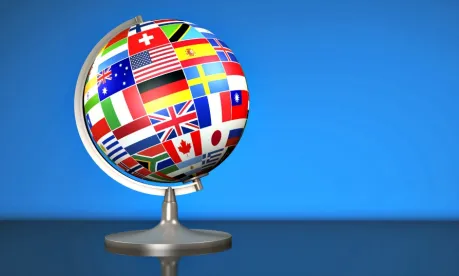On January 1, 2021, new Basel Convention controls on international shipments of non-hazardous plastic waste will go into effect in countries around the world. As Parties to the Convention implement their obligations, companies can expect new prior informed consent, contract and documentation requirements on most transboundary shipments of plastic waste. Because the United States is not a party to the Convention, many shipments of plastic waste to or from the United States will be prohibited beginning on January 1, 2021. In the near term, the new requirements will make it more burdensome to move plastic products and waste internationally for recycling, increasing legal and business risks for those companies committed to advancing circular economy business models for plastics.
The United States has announced that it recently concluded a new side arrangement with Canada to allow the continued trade in non-hazardous plastic waste (and other non-hazardous recyclables) between the two countries. However, following failed negotiations within the Organisation for Economic Co-operation and Development (OECD), most other imports and exports of Basel-controlled plastic wastes involving the United States are likely to be prohibited.
Companies operating product take-back and recycling programs for plastic products or components and those sourcing recycled plastics for use in manufacturing should assess the business risks that are likely to accompany the disruption in long-standing global trade flows in recycled plastics.
Basel Convention Plastic Waste Amendments
The Basel Convention on the Control of Transboundary Movements of Hazardous Wastes and Their Disposal (Basel Convention) is an international agreement among 188 Parties governing transboundary shipments of hazardous and other waste. The Convention informs legal requirements for waste classification and trade flows for the broader circular economy. The United States has signed but not ratified the Convention. Each Party to the Convention has agreed to enact national measures to implement the Convention’s controls and trade bans. Wastes regulated under the Convention are subject to burdensome prior-informed-consent requirements, documentation and contract requirements and in some instances trade bans, including a ban on trade with non-parties, such as the United States, absent an Article 11 side agreement.
In May 2019, the Parties to the Basel Convention adopted amendments that dramatically expanded the universe of non-hazardous plastic waste subject to the Convention’s controls and trade bans. Driven by concern about marine plastic litter, the amendments were first proposed in June 2018 and adopted shortly thereafter at the Fourteenth Conference of the Parties in May 2019, with an effective date of January 1, 2021.
With the exception of certain limited waste streams (the precise scope of which remains to be clarified), most plastic waste streams will now be presumed to be controlled as Annex II “other wastes” requiring special consideration. More specifically, plastic waste sent for recycling will be subject to prior-informed-consent controls and the ban on trade with non-parties, unless it falls into one of the narrow exceptions below:
- Certain “one polymer” streams of certain categories of plastics:
- Non-halogenated polymers (with an illustrative but not exclusive list of polymers identified).
- Resins and other thermoset plastics (with an illustrative but not exclusive list of resins identified).
- Fluoropolymers (with a short exhaustive list of resins identified).
- Mixed waste fractions of clean polyethylene, polypropylene, and PET plastic, provided that they are “destined for separate recycling” in the destination country, with accompanying documentation to prove as much, and almost free from contamination and other types of waste.
When these amendments go into effect, the vast majority of countries around the globe will be obligated to prohibit trade with the United States in most plastic waste, and even shipments between Basel Parties will likely be subject to robust documentation, contract requirements and prior-informed-consent procedures. Companies will encounter great uncertainty as Parties begin the work of interpreting the new waste listings and exclusions (e.g., the meaning of “one polymer” and whether any additives qualify as contamination). Canada, China and Turkey have given notice that they will not become bound by the new plastic amendments on the effective date, although all are likely to do so over time.
The adoption of these amendments is discussed further here and a webinar discussing these issues is available here.
OECD Decision
The OECD has adopted a Decision on the Control of Transboundary Movements of Wastes Destined for Recovery Operations (OECD Decision) that serves as Article 11 agreement governing trade in Basel-controlled wastes destined for recycling among OECD countries, including the United States. The Decision supersedes the Basel Convention and includes many trade-facilitating procedures. The appendices to the Decision largely match the Basel Convention annexes, and the OECD Decision automatically incorporates changes to the Basel Convention waste lists, unless a party to the OECD Decision objects.
In the case of the plastics amendments to the Basel Convention, the United States objected to their automatic incorporation into the OECD Decision, triggering negotiations over alternative approaches. OECD members agreed to incorporate the new Basel waste listing in Annex VIII for hazardous plastic wastes into the OECD Decision. However, OECD members were unable to reach consensus on an alternative approach and were even unable to reach consensus regarding the meaning of their non-consensus. Accordingly, OECD member countries that have adopted the Decision will each have their own interpretation of applicable requirements following the failure of negotiations intended to update the classification for plastic wastes. This outcome gives rise to significant legal uncertainty on the question of whether OECD members will allow future trade in plastic wastes with the U.S. to continue.
For the near term, each OECD member country will determine its own approach for managing plastic waste shipments within the OECD. Entities shipping plastic waste will need to evaluate the legal mandates and policies of each country involved in the shipment, presenting new business and legal risks. In many if not most instances, shipments of most non-hazardous plastic waste between the United States and other OECD countries may be subject to control or the Basel Convention party/non-party ban. Going forward, OECD members have agreed to review the situation for non-hazardous plastic waste in 2024.
New U.S. – Canada Arrangement
Facing a potential ban on cross-border trade in plastic wastes valued at over $20 billion annually, the United States and Canada have agreed to an Arrangement Between the Government of the United States of America and the Government of Canada Concerning the Environmentally Sound Management of Non-Hazardous Waste and Scrap Subject to Transboundary Movement that will allow the two countries to continue trading in non-hazardous plastic wastes even after Canada implements the new Basel listings for plastic wastes. The United States and Canada previously entered into a bilateral agreement governing shipments of hazardous waste between the two countries in 1986, before the Basel Convention was negotiated. That agreement does not cover non-hazardous waste. Canada has notified the Secretariat that it will delay ratification of the Basel Convention amendments on plastic wastes, allowing Canada time to adjust its domestic control requirements and take steps to preserve existing recyclables trade flows with the United States.
The new “arrangement” governing shipments between the United States and Canada allows for trade in non-hazardous plastics between the United States and Canada to continue, regardless of Canada’s implementation of the Basel plastic amendments, and it expressly indicates its intent to serve as a so-called Article 11 agreement under the Basel Convention.
Shipments of non-hazardous waste and scrap between the U.S. and Canada will not be subject to any notifications or prior approvals and covered only by routine commercial paperwork requirements associated with other transboundary commodity flows. The arrangement is framed as affirming the environmentally sound management in the United States and Canada of non-hazardous waste and scrap subject to transboundary movement between the two countries.
Notably, the scope of the agreement is not limited to non-hazardous plastics: it covers virtually all non-hazardous waste and scrap. In doing so, it effectively “future-proofs” the U.S. – Canada trade relationship against potential future amendments that may expand Annex II (covered non-hazardous wastes) under the Basel Convention, allowing continued trade in all non-hazardous waste and scrap regardless of whether they are controlled under the Basel Convention. The new arrangement does not extend to wastes subject to the OECD Amber list procedures as such shipments are presumably already covered by existing legal measures governing hazardous wastes in the two countries.






 />i
/>i

